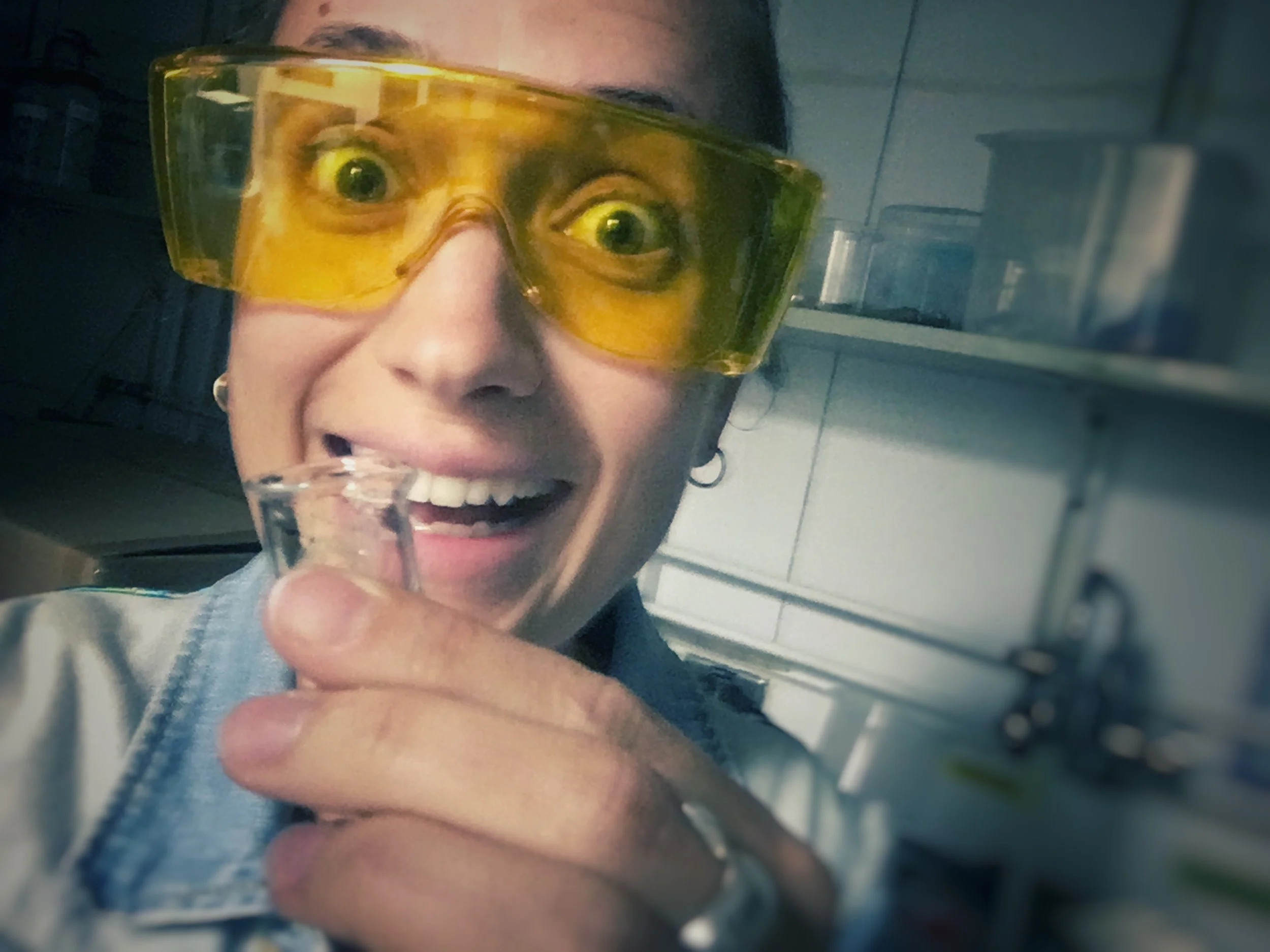For the love of the game
by Kate Furby
I’m a terrible winner. It happens so rarely that when I do, I’m completely unprepared. I yell with excitement, throw my hands in the air, in your face. Maybe that’s why I became a scientist. The thrill of discovery.
Discovery is most exciting when it’s a surprise. A big risky experiment pays off unexpectedly. When the breakthrough occurs, scientists are celebrated for their big success. Life, as we know it is a little bit different, a little bit shinier with our glorious knowledge of how the world works. As a grad student, I’m searching for those shiny flecks of knowledge. But seek and ye shall find is not a science motto. Scientists will frequently endure years of failure before that “Eureka!” moment. This is a story about searching, eureka-less. This is about chasing rainbows without ever finding gold. This is looking failure in the face.
I usually tell people I study “coral recovery.” What I’m really interested in is the potential for dead coral to come back to life. “Zombie” corals we call it. A coral is complex. It’s an animal with a symbiotic, microscopic plant friend living inside it, sharing resources. The coral creates a rock skeleton as it grows: it is the solar-powered, structural engineer of a coral reef ecosystem.
Corals have the ability to survive death. They can break into little pieces and regrow from pieces (similar to succulent fragments). But what is the limit of this survival? Could a few cells survive to regrow a reef? As a baby scientist, I started to see patterns of life on the reef. Tiny pieces of coral were appearing on the dead skeleton. They didn’t look like new coral. They looked old and distorted, and they were growing out of cracks and cryptic areas of dead coral. Based on that preliminary data and the literature, I thought there might be living cells hidden inside the dead coral skeleton. In a world of declining coral reefs, there were plenty of dead to study.
In science, it is okay if your hypothesis is wrong. You can still publish what you learned. For example, if you study the benefits of fertilizer on grass growth, but your experiment shows no effect of fertilizer, you have new data on how a specific fertilizer does not affect growth. Valuable information. My hypothesis was: dead corals are actually alive. If I’m right, corals come back from the dead, and coral conservation changes forever. If I’m wrong, dead corals are dead. This is in fact, less interesting than watching grass grow. (At least the grass gets somewhere...)
I formulated this idea with some colleagues around 2013 and set off excitedly in different directions to pursue my “it’s so crazy it just might work” project. I found a fluorescence expert, and together we recorded the first ever seen glowing organism in the dead coral. It looked just like a living coral, hiding out inside a dead one. I contacted an old-school, semi-retired biologist, and together we used a 100-year-old method to examine cells inside corals. I teamed up with some genomics students and we set about cataloging the DNA of the corals, living and dead. Three years of some of the most exciting research I could imagine. In an era of climate disasters, could zombie corals save reefs?
Nope. I think dead corals are dead…mostly. I spent years watching them stay dead, and still can’t even say for certain that they are dead. There was something glowing in the skeleton, but we couldn’t prove it was coral. The structural and genomic investigations are still in progress, but one of the microscopic examinations yielded definitely no living coral inside the dead. In my failure to really come to any conclusion, there is a tiny silver lining. Dead coral skeleton may, may, be devoid of living coral, but they are teeming with other life. There is a creepy Tim Burton-directed underworld of creatures that invade dead (and sometimes still living!) corals. This is not a new discovery and it won’t make the news. But, there are tiny monsters of decay in dead coral and my autopsy may find something new afterall.
Being a terrible winner means I’m a good loser. My painful lack of coordination and speed sets me up for frequent sports failure. However, sometime between being picked last for middle school soccer and getting hit in the face with the softball pitching machine, I learned to love playing the game anyway.
